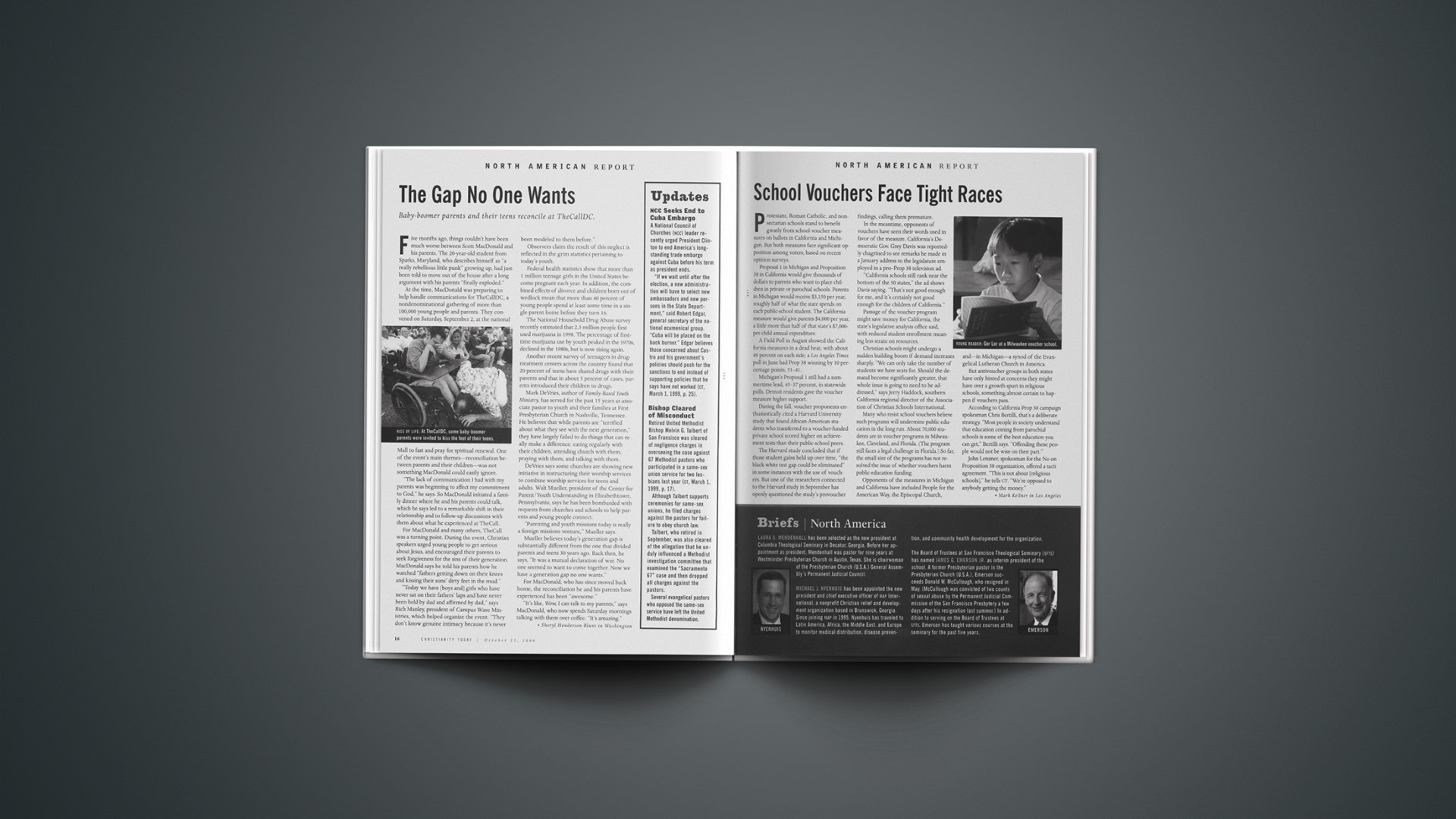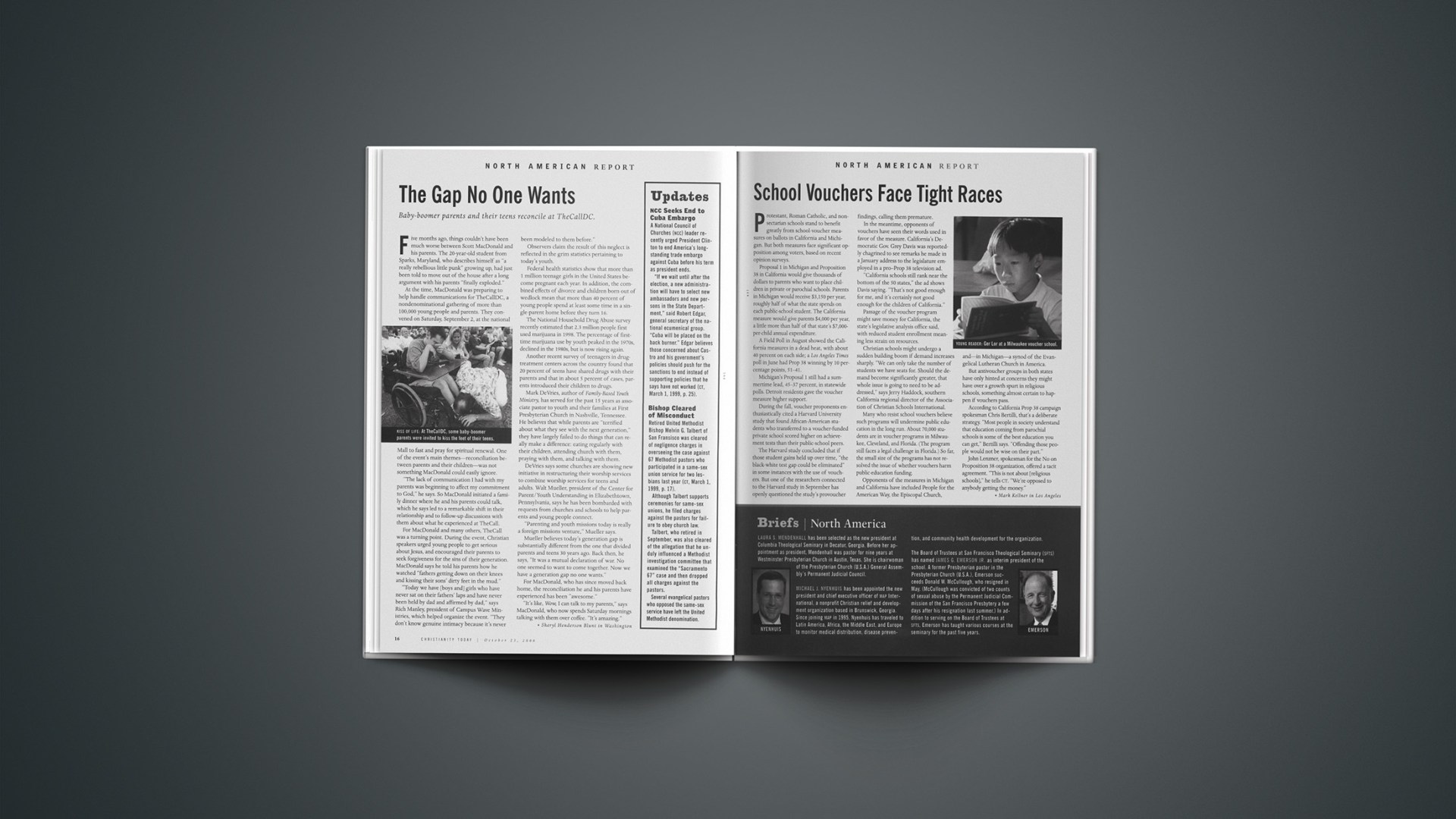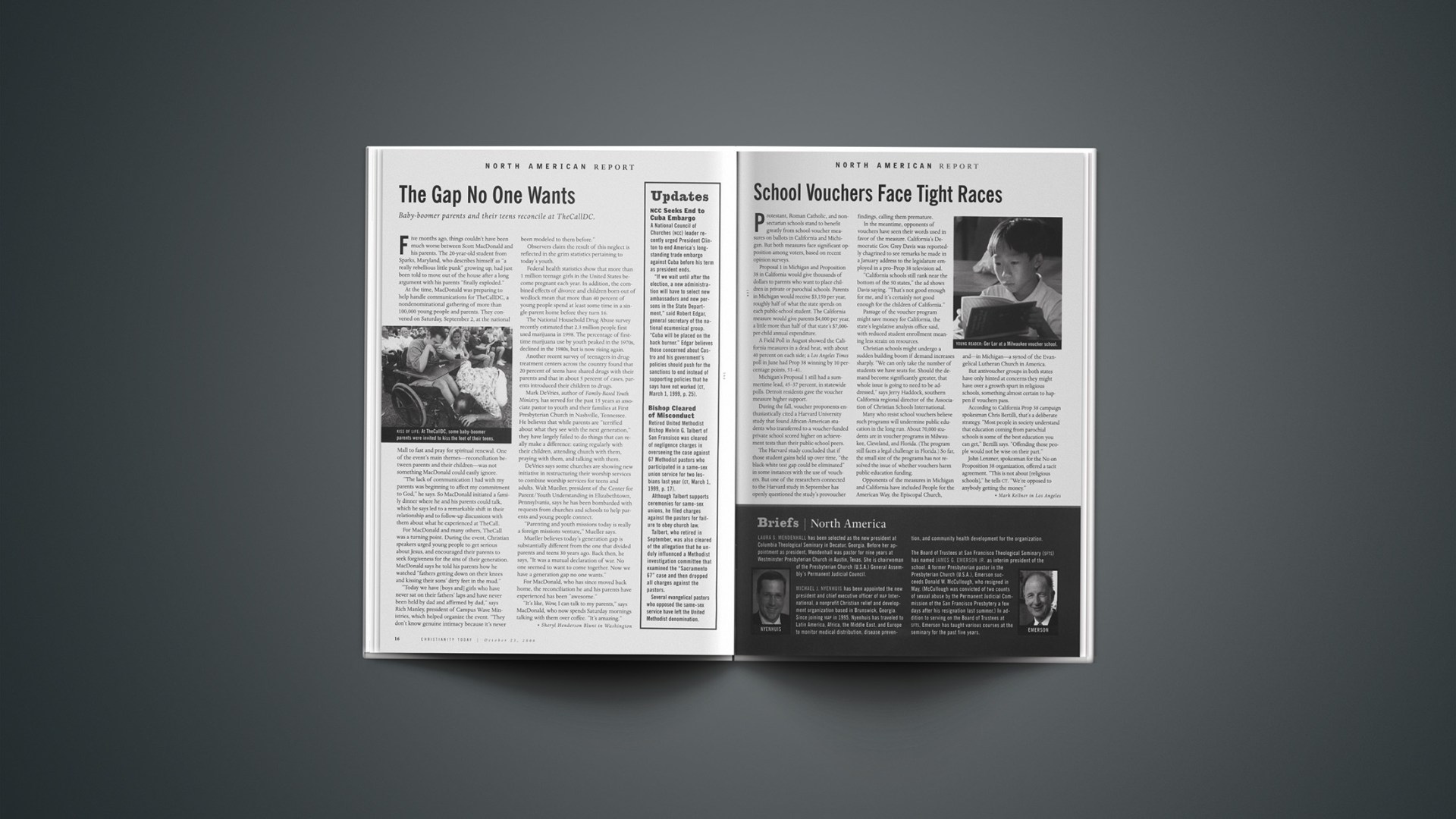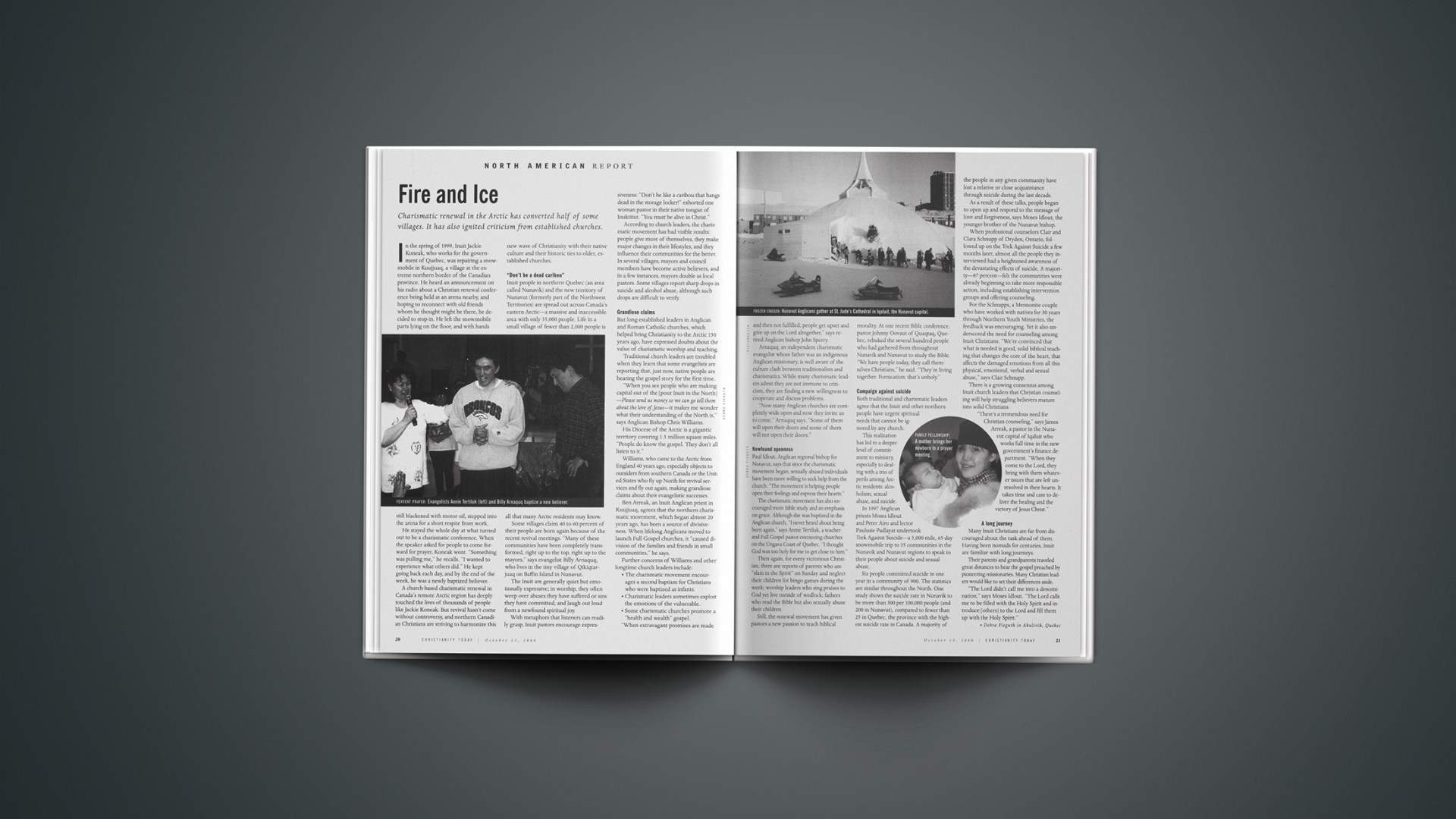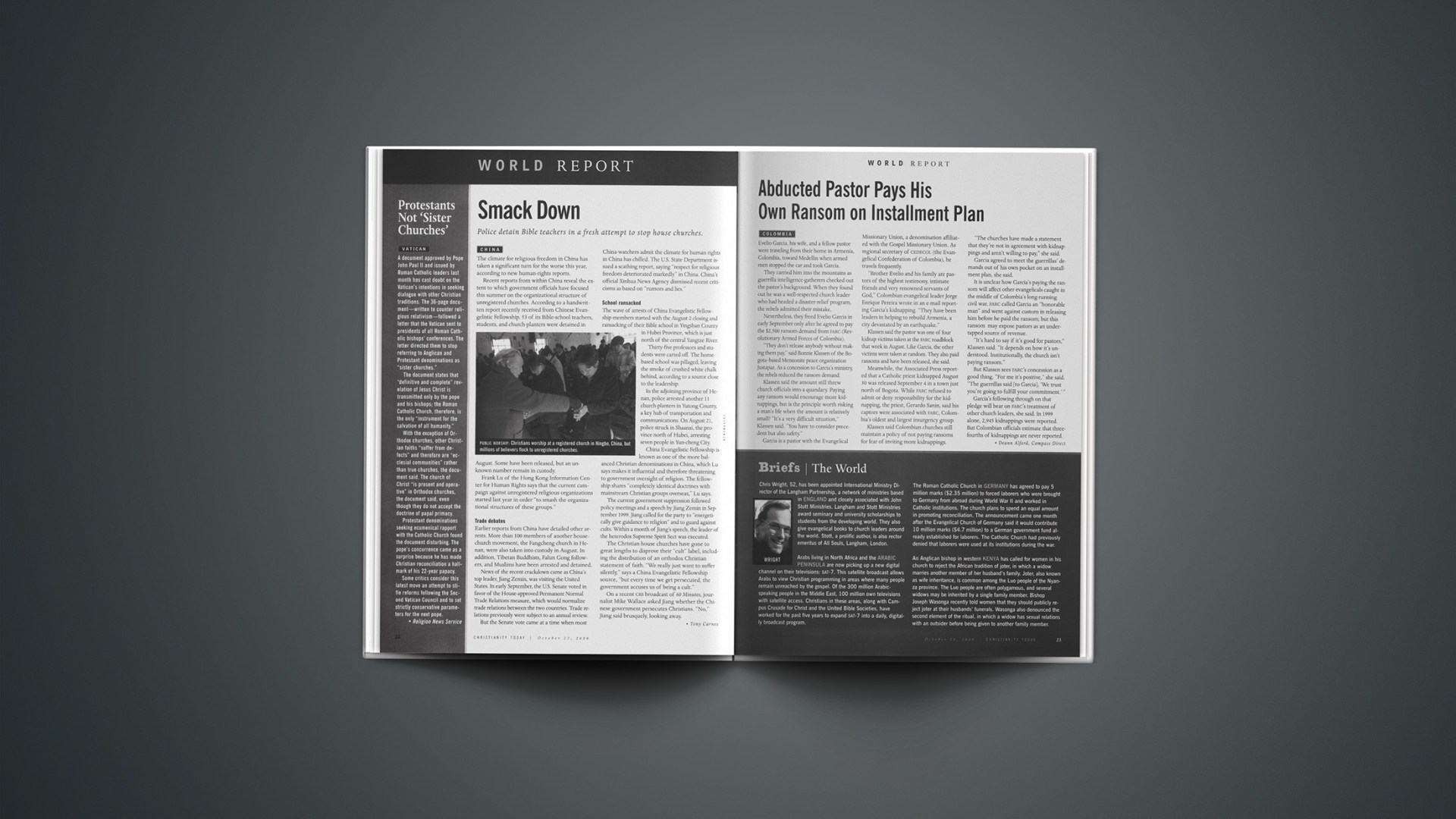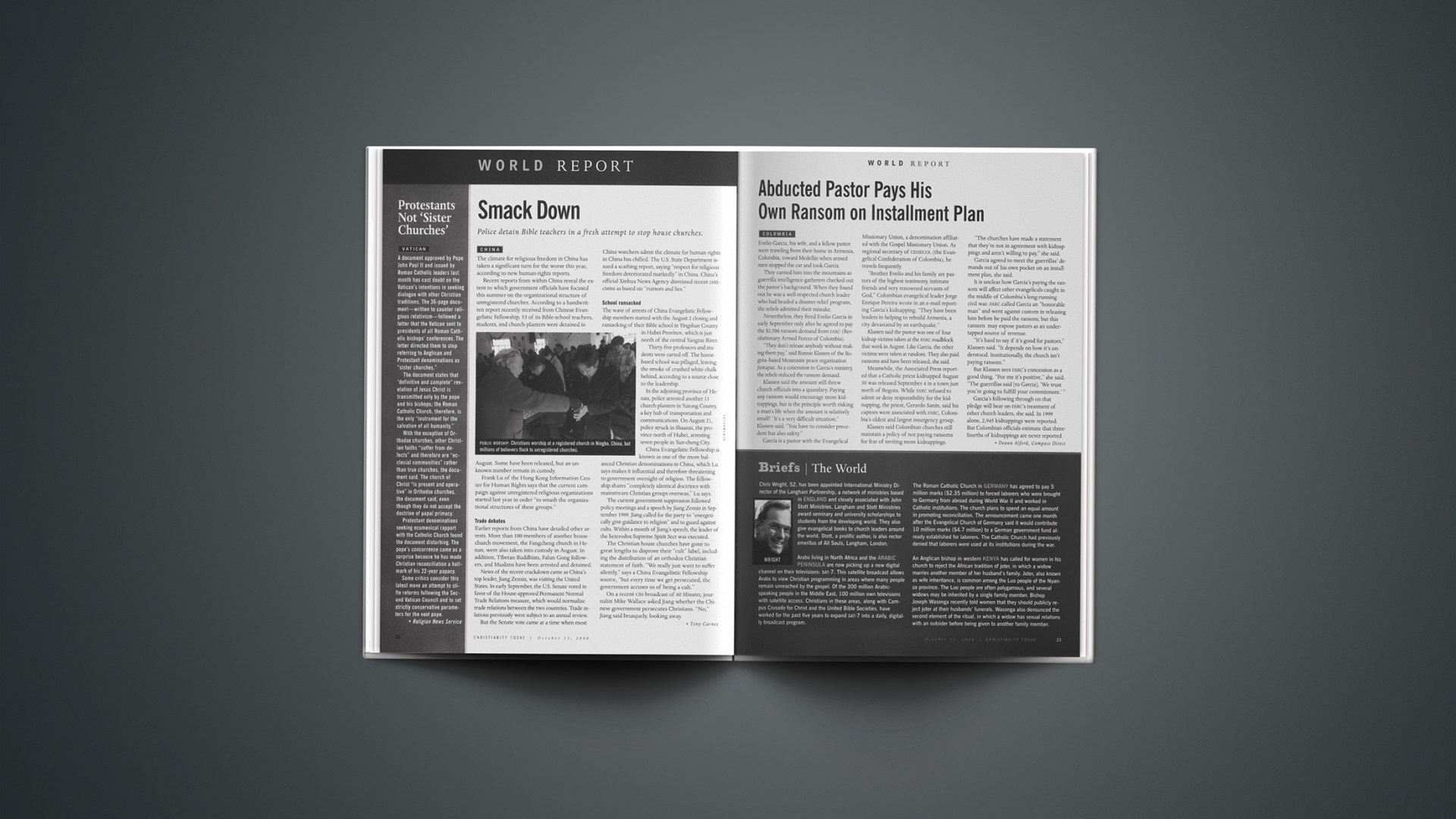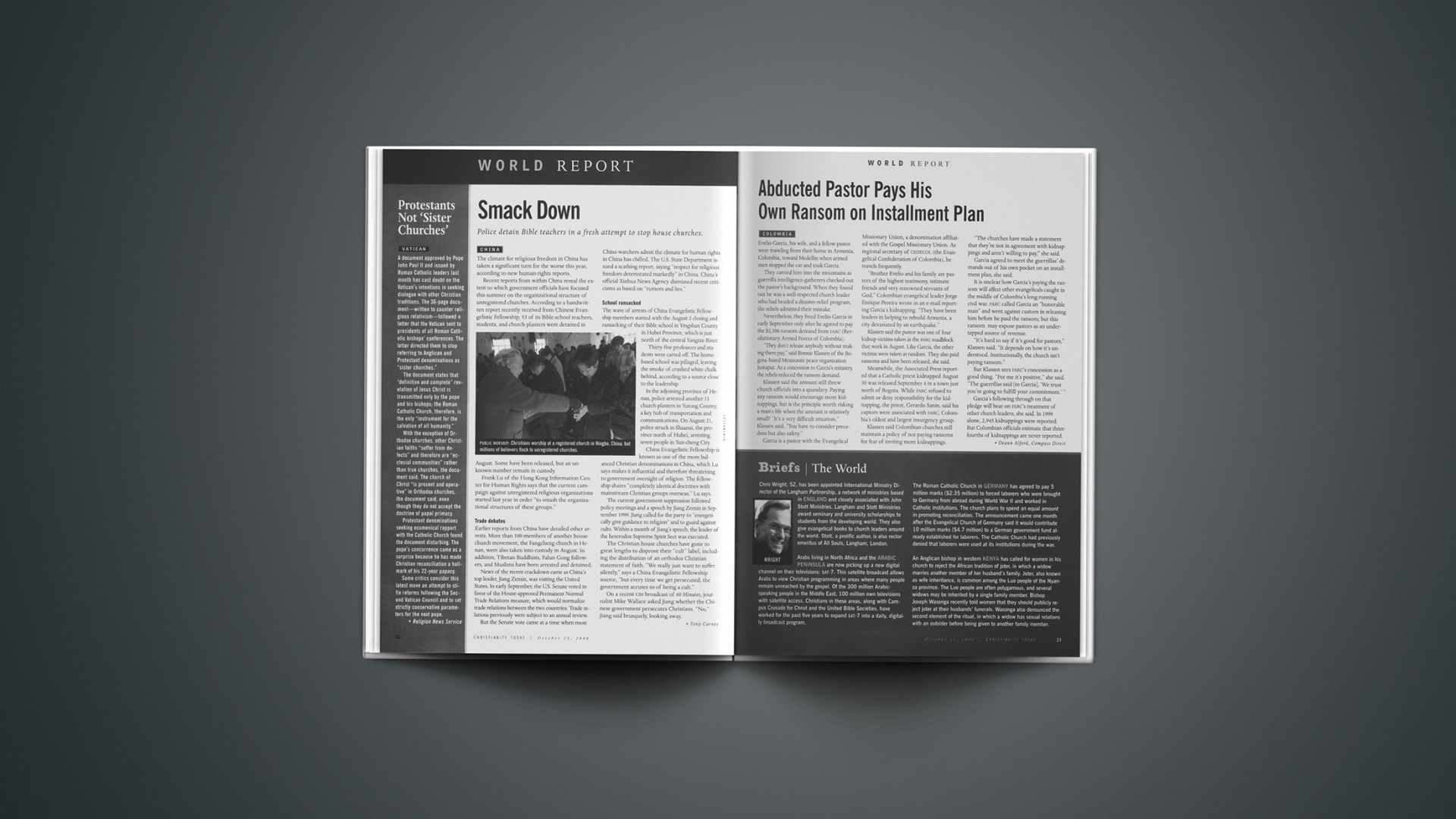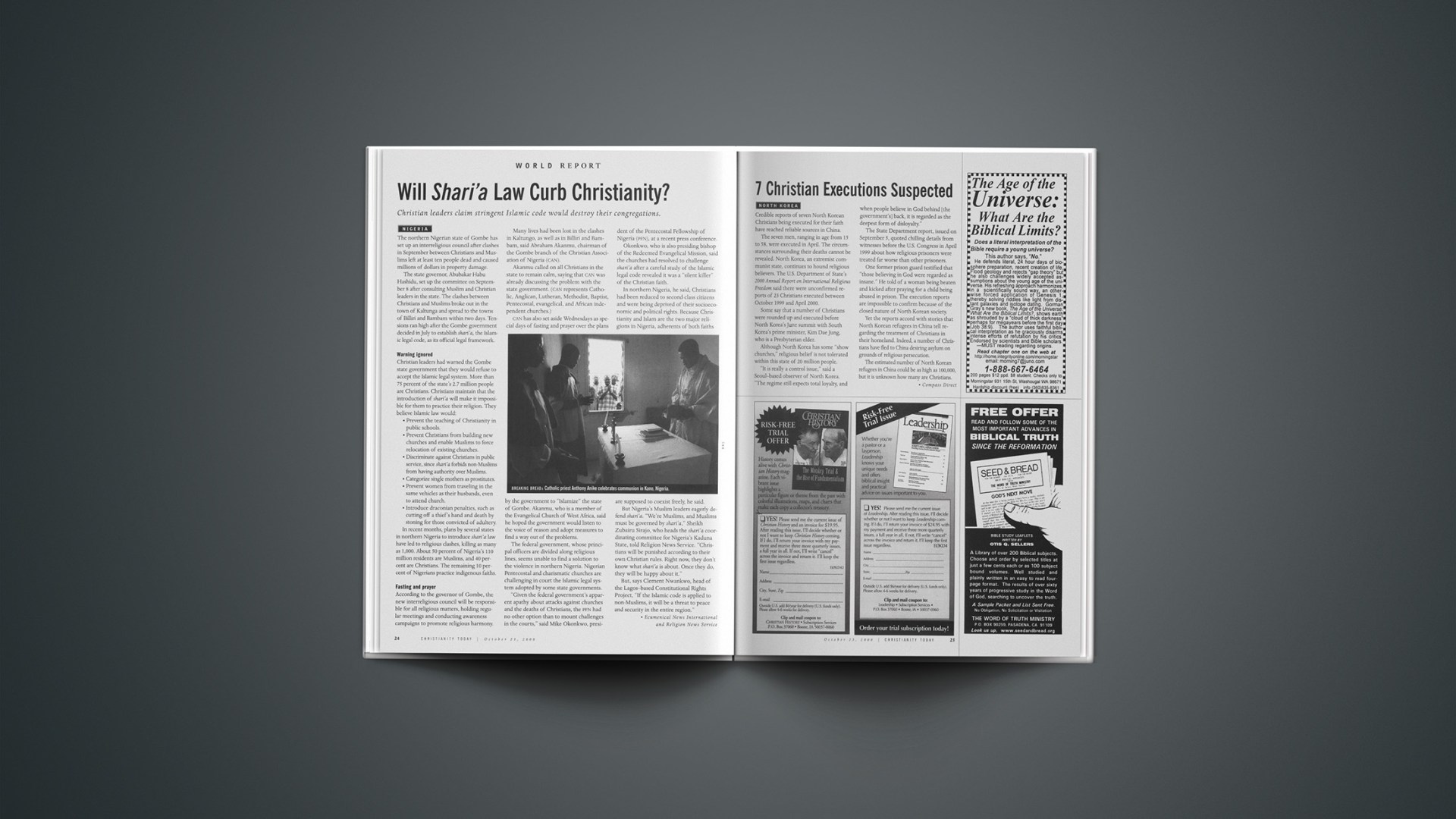A National Council of Churches (NCC) leader recently urged President Clinton to end America’s longstanding trade embargo against Cuba before his term as president ends.”If we wait until after the election, a new administration will have to select new ambassadors and new persons in the State Department,” said Robert Edgar, general secretary of the national ecumenical group. “Cuba will be placed on the back burner.” Edgar believes those concerned about Castro and his government’s policies should push for the sanctions to end instead of supporting policies that he says have not worked (CT, March 1, 1999, p. 25).
Bishop Cleared of Misconduct
Retired United Methodist Bishop Melvin G. Talbert of San Francisco was cleared of negligence charges in overseeing the case against 67 Methodist pastors who participated in a same-sex union service for two lesbians last year (CT, March 1, 1999, p. 17).Although Talbert supports ceremonies for same-sex unions, he filed charges against the pastors for failure to obey church law.Talbert, who retired in September, was also cleared of the allegation that he unduly influenced a Methodist investigation committee that examined the “Sacramento 67” case and then dropped all charges against the pastors.Several evangelical pastors who opposed the same-sex service have left the United Methodist denomination.
Copyright © 2000 Christianity Today. Click for reprint information.

